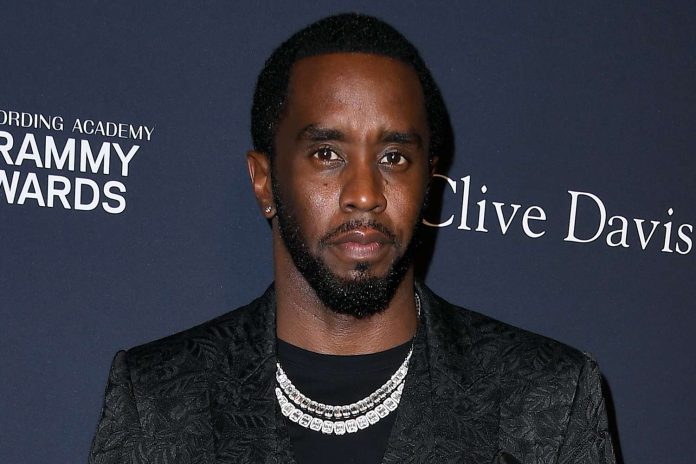In a New York City courtroom, the final act of Sean “Diddy” Combs’ dramatic fall from grace played out not with a bang, but with a quiet, crushing weight. The hip-hop mogul, once the embodiment of untouchable success, stood before a judge and heard the words he had fought for years to avoid: a sentence of 50 months in federal prison.
The hearing was a stark theater of contrasting realities. For much of the morning, Combs sat back in his seat, maintaining a quiet and non-reactive demeanor as prosecutors laid out the case against him. They spoke of a man who used his celebrity as a weapon, detailing a pattern of control and abuse against his ex-girlfriends, Casandra “Cassie” Ventura and a woman known in court as “Jane.”
But the facade of detachment crumbled as the day wore on. The courtroom heard from his children, their voices breaking with sobs. One daughter, 18-year-old Delila, made a desperate plea to the judge, saying, “We can’t watch our baby sister grow up fatherless the same way we grew up motherless.” His son, Quincy Brown, called his father a “changed man.” As they spoke, Combs was seen holding his head in his hands, appearing to fight back tears.
Then, it was his turn to speak. In his first public words since the trial began, the man known for his bombastic public persona was gone, replaced by a subdued figure offering a raw, if calculated, apology.
“My actions were disgusting, shameful, and sick,” Combs said, his voice likely a whisper in the quiet room. “I got lost in excess, I got lost in my ego.” He apologized directly to Ventura and “Jane,” and then to his own children. “I’m so sorry. They deserved better,” he said, before turning to the judge with a final, personal plea: “I ask your honor for mercy. I beg your honor for mercy.”
His legal team argued that the 13 months he had already served was enough, painting a picture of a remorseful man who had inspired even his own attorneys in jail. They played a 15-minute video celebrating his achievements, a highlight reel of a life that now seemed a world away.
But Judge Arun Subramanian saw a different man. He acknowledged Combs’ charity and deep family ties, but he rejected the defense’s narrative outright. “You abused them, physically, emotionally and psychologically,” the judge told Combs, his words leaving no room for interpretation. He described Combs’ actions not as consensual excess, but as “subjugation,” made possible by his “money and power.”
In the end, the sentence—just over four years, with credit for time served—was a compromise. It was far less than the 11 years prosecutors wanted, but much more than the freedom his family begged for. As the gavel fell, it signaled not just the start of a prison term, but the final, definitive shattering of an empire built on image. For Sean Combs, the sentence was a legal conclusion, but for the women he harmed and the family he fractured, the consequences are just beginning.
showbizztoday.com NY

